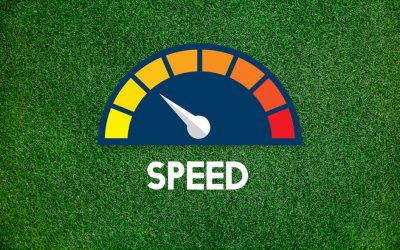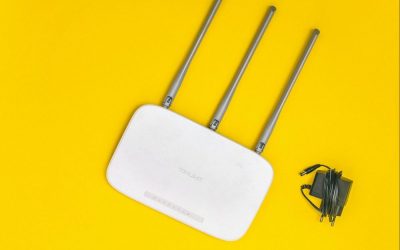Test your current internet speed
Before you get started, test your current internet speed. Use your speed test result as a baseline and compare the results as you go through your journey on reaching a faster internet connection.
SpeedtestIf you are looking to improve your internet speed and privacy, you may have heard about VPNs. VPNs, or virtual private networks, are services that allow you to connect to the internet through a remote server. This can provide various benefits such as increased privacy and security, but can it also increase your internet speed?
The answer is yes, in some cases. A VPN can help you bypass internet service provider (ISP) throttling and improve your overall internet performance. However, the impact on your speed will depend on various factors such as the location of the VPN server, your internet connection, and the VPN service you choose.
How VPNs can improve your speed
ISPs may throttle your internet speed for various reasons such as congestion or to prioritize certain types of traffic. This can lead to slower internet speeds, especially during peak hours. However, when you connect to a VPN, your internet traffic is encrypted and routed through a remote server, which can help you bypass ISP throttling and improve your internet speed.
Additionally, VPNs can also help you improve your speed by reducing latency or ping times. When you connect to a VPN server that is closer to your physical location, you may experience lower latency and faster internet speeds.
Factors that impact VPN speed
While a VPN can improve your internet speed, it is important to note that the impact on your speed will depend on various factors.
Some of these factors include:
- Location of the VPN server: The farther the VPN server is from your physical location, the higher the latency and slower the speed may be.
- Internet connection: If you have a slow internet connection, connecting to a VPN may not significantly improve your speed.
- VPN service: Not all VPN services are created equal. Some may offer faster and more reliable connections than others.
- Encryption: Strong encryption can improve your privacy and security, but it can also impact your internet speed.
Choosing the right VPN for speed
If you want to improve your internet speed with a VPN, it is important to choose a high-quality VPN service that offers fast and reliable connections. Look for a VPN service that offers servers in locations that are closer to your physical location, as this can reduce latency and improve your speed.
Additionally, make sure to choose a VPN service that uses strong encryption but does not compromise on speed. Some VPN services may offer features such as split tunneling, which allows you to route some traffic through the VPN while leaving other traffic unencrypted, to optimize your speed and security.
Conclusion
In conclusion, a VPN can increase your internet speed in some cases by bypassing ISP throttling and reducing latency. However, the impact on your speed will depend on various factors such as the location of the VPN server, your internet connection, and the VPN service you choose.
If you connect to a server that is far away from your physical location, your internet speed may decrease due to latency. This is because the data has to travel a longer distance to reach the VPN server and then come back to you.
To get the best possible speed, it is recommended to connect to a VPN server that is closer to your physical location. For example, if you are in the US, it is best to connect to a server located in the US. This will reduce latency and improve your internet speed.
However, it is important to note that using a VPN will always introduce some degree of latency, as the data has to travel through an additional server before reaching its final destination. This latency may be negligible for some users, but it can be significant for others, especially if you are engaged in activities that require low latency such as gaming or video conferencing.
In summary, a VPN can increase your internet speed in some cases, but it depends on various factors such as the location of the VPN server, your internet connection, and the VPN service you choose. If you are experiencing slow internet speeds, using a VPN may help you improve your performance, but it is important to choose a high-quality VPN service that offers fast and reliable connections.
How does a VPN improve my internet speed?
A VPN can help you bypass ISP throttling and improve your overall internet performance. This can lead to faster download and upload speeds, especially if your ISP is intentionally slowing down your internet connection.
Can a VPN slow down my internet speed?
Yes, using a VPN can sometimes slow down your internet speed. This can happen due to various factors such as the location of the VPN server, your internet connection, and the VPN service you choose.
How do I choose the best VPN for faster speeds?
To choose the best VPN for faster speeds, look for a provider that offers fast and reliable connections, has servers in your physical location, and uses advanced encryption protocols.
Can a VPN speed up my streaming?
Yes, a VPN can sometimes speed up your streaming if your ISP is intentionally slowing down your internet connection. By using a VPN, you can bypass ISP throttling and enjoy faster streaming speeds.
Will a VPN increase my latency?
Yes, using a VPN will always introduce some degree of latency, as the data has to travel through an additional server before reaching its final destination. However, the latency may be negligible for some users, while it can be significant for others, especially if you are engaged in activities that require low latency such as gaming or video conferencing.

The visionary founder behind SpeedtestGo, an innovative platform dedicated to helping users measure and optimize their internet speed. With a deep-rooted love for technology and a mission to empower individuals with reliable internet connections, Shawn has created a remarkable space where users can test their internet speed and gain valuable insights and information through engaging blog content.








